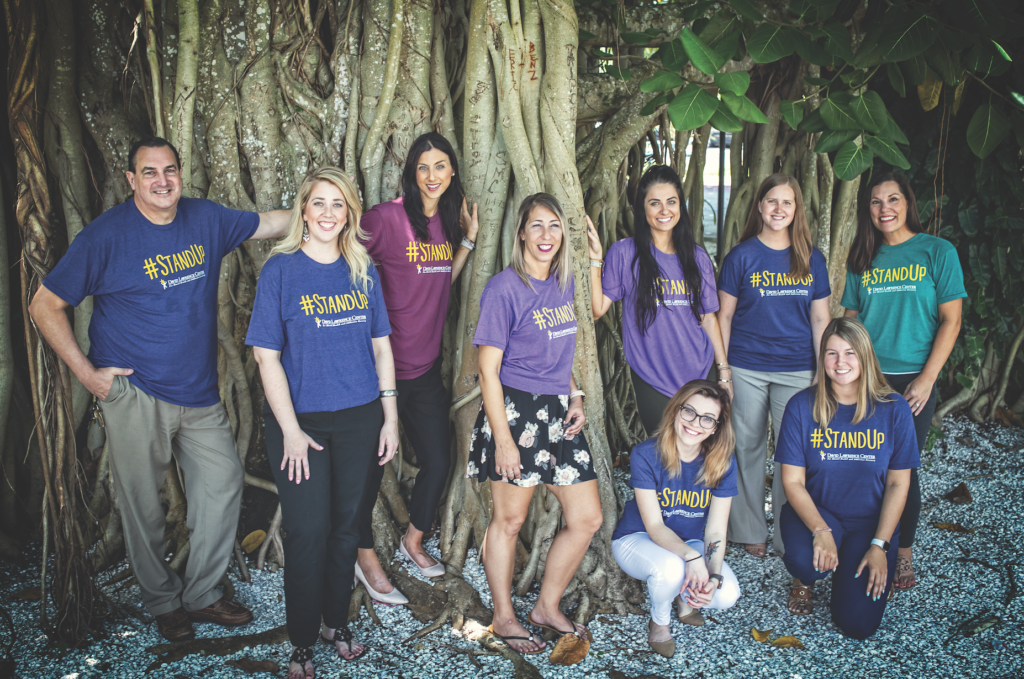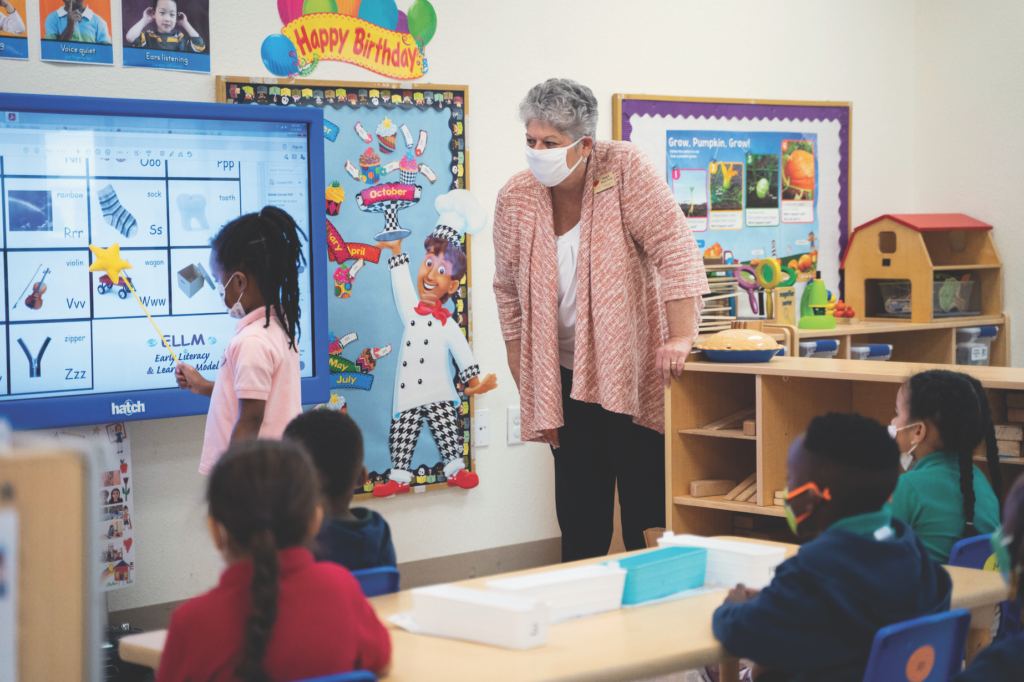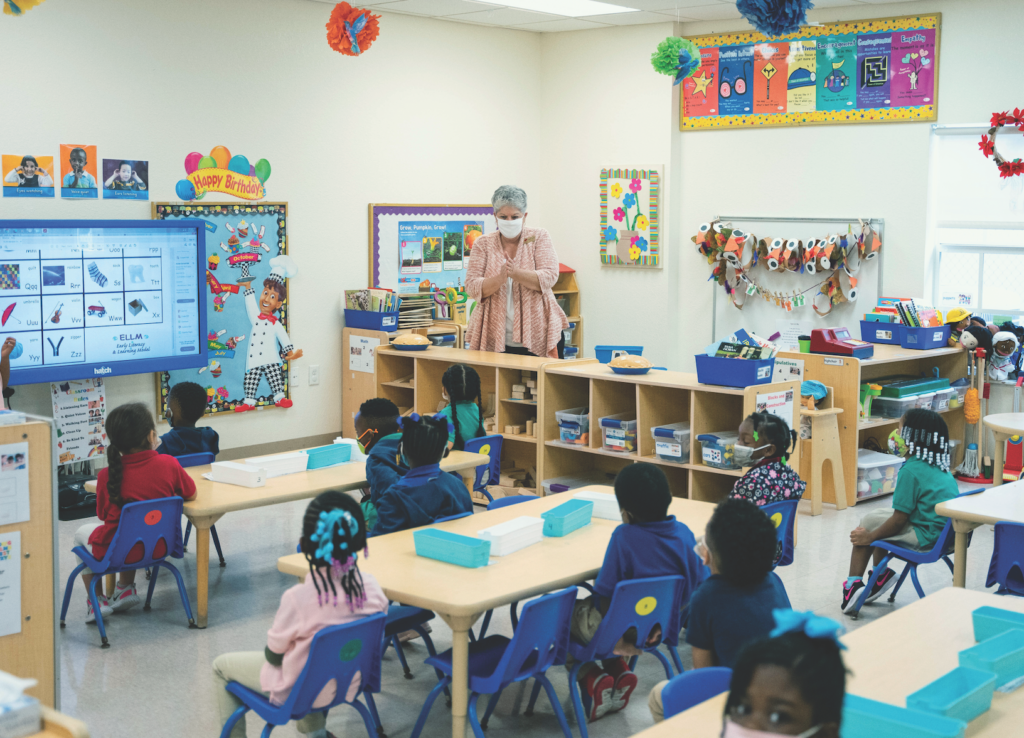A little more than 20 years ago, after identifying the dire needs of underserved children in Collier County, a brain trust of engaged individuals founded the Naples Children & Education Foundation (NCEF). They created the Naples Winter Wine Festival (NWWF) as the organization’s primary fundraiser.
Over the years, the event grew to become the top nonprofit wine auction in the country. The world-class pours and chefs, glittering lots and camaraderie are all undoubted attractions. But what motivates patrons, donors, volunteers and the nonprofit employees most, is that the efforts go a long way.
Ann Bain, a former member of the grant committee, is one of the longtime trustees who has witnessed the impact of NCEF up close for years. In 2005, when members of the committee noticed that local charities were duplicating services and often competing for the same dollars, NCEF commissioned an independent study from the University of Florida Lastinger Center of Learning that resulted in a focus of seven key strategic initiatives: hunger, healthcare, mental health, early learning, out-of-school time, oral health and vision. “We took the competition out of it and allowed charities to get funded to serve the maximum number of children,” she says.
By stressing collaboration, not competition, and constant communication, the beneficiaries are able to help care for the whole child—it’s not uncommon for children who benefit from NCEF dollars to require services from many of the organizations it supports.
This proactive approach allows groups to pivot to specific community needs. “We’ve been able to create so much positive change,” Bain says. “We see it in the behavior in school, the graduation rates, the number of children who are healthy.” The strategy has also proven invaluable in coordinating pandemic relief efforts.
Just how does all this play out in action? Let’s take a look.

Children’s Hunger
In Collier County, nearly 70% of children receive free or reduced meals. For many kids, these meals represent their entire diet. The Harry Chapin Food Bank of Southwest Florida—which serves five counties, including Collier—maintains relationships with 31 nonprofit agencies who distribute food to the most vulnerable populations.
As a result of NCEF funding, more than 8.3 million meals have been distributed throughout the county since 2011, according to the organization’s president and CEO, Richard LeBer. This includes partial funding for Harry’s Helpings, an innovative program that provides food kits for more than 250 families each month.
NCEF also helps fund Fulfill Mobile Pantries, which serves areas of high need, like Immokalee, Golden Gate and East Naples. Each distribution easily serves more than 500 families, providing them with fresh produce, canned or dry goods, frozen meat, bread, grains and other foods. “NCEF has a long history of supporting Harry Chapin Food Bank, and this impact is enormous,” LeBer says. “The NCEF is a leader in supporting the concept of comprehensive programmatic funding for organizations like ours, and they bring awareness to the issue of hunger.”
It’s needed more than ever, as the COVID-19 pandemic has caused an economic crisis that has triggered a wave of need. “Many of the families we serve are experiencing hunger for the first time. Seas of cars, full of families and children who are hungry, are flooding our drive-through distributions. Some families have lost all income while others are facing reduced hours,” LeBer says.
In response, with NCEF’s help, the group has taken decisive action. They modified their Fulfill Mobile Pantries to be drive-through to protect from the virus and added additional distributions in Collier. They also adjusted their processes to accommodate the increased needs of partner organizations, such as Pathways Early Education Center of Immokalee.
At the Naples distribution center, for example, they increased production to 7,000 food kits each week. As a result, the distribution in the county has increased by 177%. “The funds raised during the Naples Winter Wine Festival have a ripple effect across Collier County,” LeBer says. “Children’s lives are changed forever.”
In Collier County, nearly 70% of children receive free or reduced meals. For many kids, these meals represent their entire diet. The Harry Chapin Food Bank of Southwest Florida—which serves five counties, including Collier—maintains relationships with 31 nonprofit agencies who distribute food to the most vulnerable populations.
As a result of NCEF funding, more than 8.3 million meals have been distributed throughout the county since 2011, according to the organization’s president and CEO, Richard LeBer. This includes partial funding for Harry’s Helpings, an innovative program that provides food kits for more than 250 families each month.
NCEF also helps fund Fulfill Mobile Pantries, which serves areas of high need, like Immokalee, Golden Gate and East Naples. Each distribution easily serves more than 500 families, providing them with fresh produce, canned or dry goods, frozen meat, bread, grains and other foods. “NCEF has a long history of supporting Harry Chapin Food Bank, and this impact is enormous,” LeBer says. “The NCEF is a leader in supporting the concept of comprehensive programmatic funding for organizations like ours, and they bring awareness to the issue of hunger.”


It’s needed more than ever, as the COVID-19 pandemic has caused an economic crisis that has triggered a wave of need. “Many of the families we serve are experiencing hunger for the first time. Seas of cars, full of families and children who are hungry, are flooding our drive-through distributions. Some families have lost all income while others are facing reduced hours,” LeBer says.
In response, with NCEF’s help, the group has taken decisive action. They modified their Fulfill Mobile Pantries to be drive-through to protect from the virus and added additional distributions in Collier. They also adjusted their processes to accommodate the increased needs of partner organizations, such as Pathways Early Education Center of Immokalee.
At the Naples distribution center, for example, they increased production to 7,000 food kits each week. As a result, the distribution in the county has increased by 177%. “The funds raised during the Naples Winter Wine Festival have a ripple effect across Collier County,” LeBer says. “Children’s lives are changed forever.”
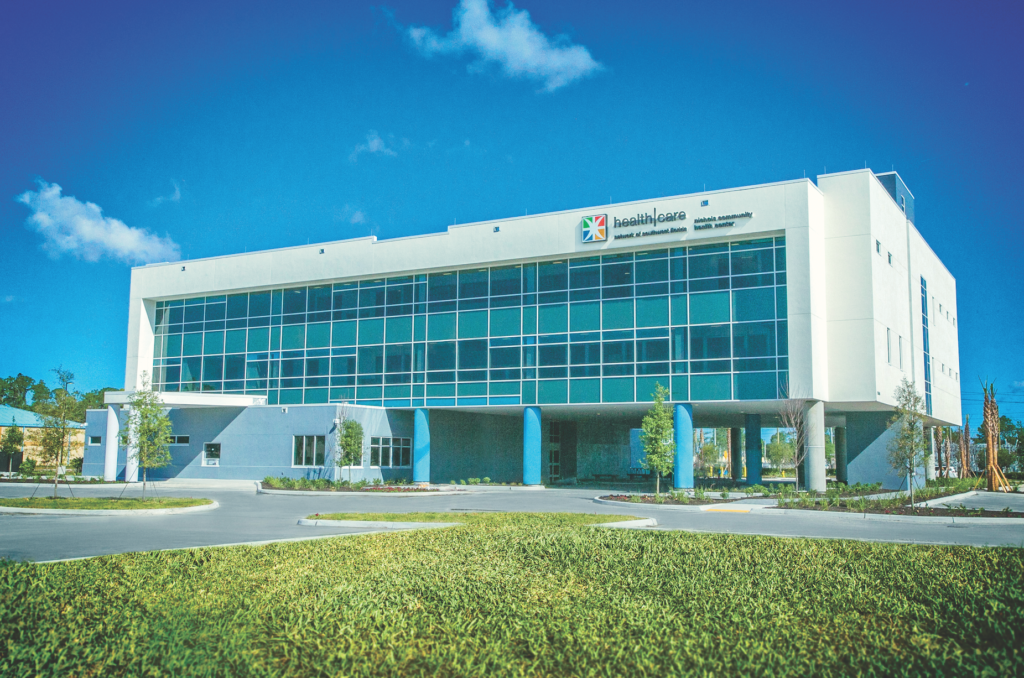
Children’s Healthcare
The Healthcare Network makes sure that quality care is accessible to all—regardless of their insurance status or ability to pay.
Last year, that mission took on new meaning. “Just because there’s a pandemic doesn’t mean that essential medical care can stop, or you’ll have two or three more public health crises on your hands,” CEO Dr. Emily Ptaszek says. That means continuing to provide medical, vision and dental services for 50,000 patients a year, including about 60% who are children.
This year, the team opened the Nichols Community Health Center in Golden Gate, one of the most underserved communities in the county. The 51,000-square-foot building provides primary care services, including pediatric care, obstetrics and gynecology, adult and senior care, integrated behavioral health and a drive-thru pharmacy. The center also provides access to a new pediatric behavioral health model, which supports the child and family.

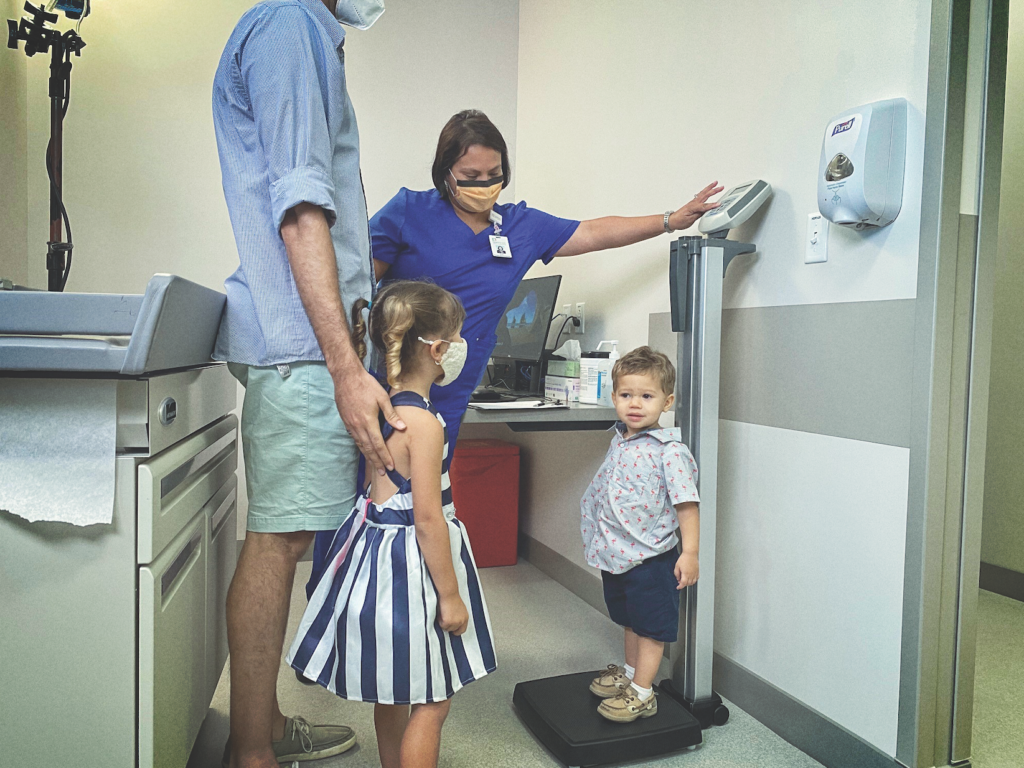
The services are a matter of life and death, Ptaszek says: “The pandemic has only widened economic and healthcare disparities. Our patients are experiencing multiple stressors all at once, from economic to psychological health issues. At first, we saw people who were afraid to come for care and address acute issues, and that can be a real problem.” The team has also cared for residents who themselves are frontline workers, including first responders, teachers and caregivers, while expanding technology and telehealth services.
Ptaszek says that the Healthcare Network could not provide this level of care without the help of NCEF. “They have supported us for a long time and made multiple transformational gifts to this organization. They have supported every service line we have for children, from behavioral health to dental health,” she says. As the uninsured rate increases, community health centers like Nichols Community Health Center, will continue to be vital to community health. “Collier County is very fortunate to have NCEF,” Ptaszek says. “They are able to meet needs that other counties really struggle with. This community is very different because of their support.”
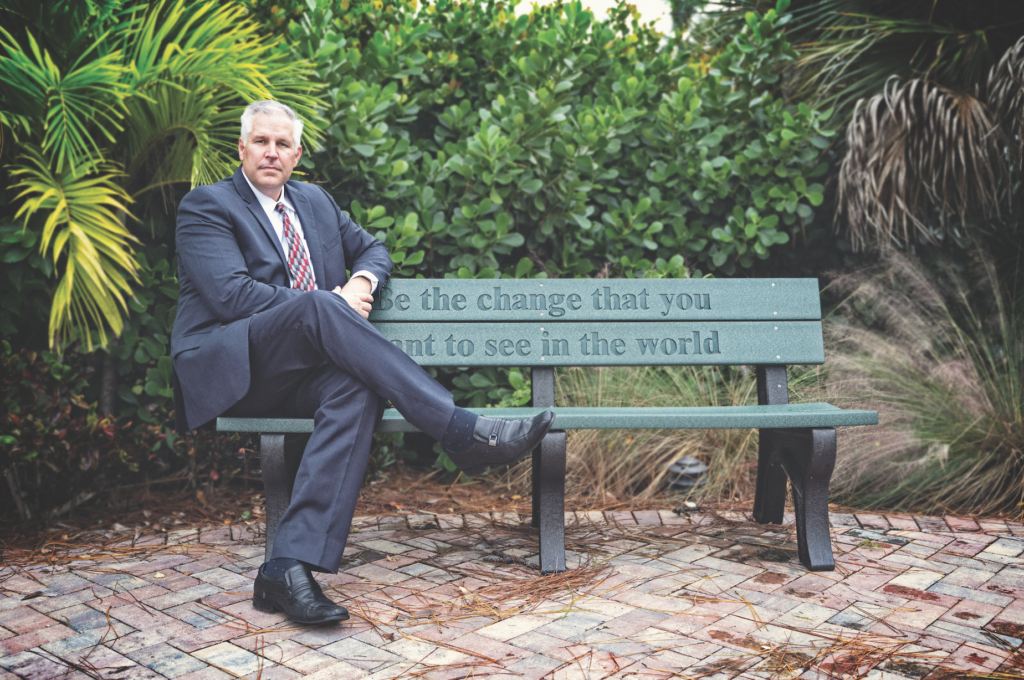
Children’s Mental Health
David Lawrence Centers (DLC) is a comprehensive community health program that is leading the charge on increasing access to and reducing the stigma surrounding mental healthcare.
With inpatient, outpatient and community-based programs, the teams are on the frontlines of responding to a mental health crisis worsened by the pandemic. “We are a 24/7, 365 days a year organization—we are always here,” CEO Scott Burgess says.
Since last year, DLC has not just maintained access to care, but expanded virtual services. More than 70% of patients are considered low income, and many are uninsured or underinsured, which is why partners like NCEF are so instrumental.
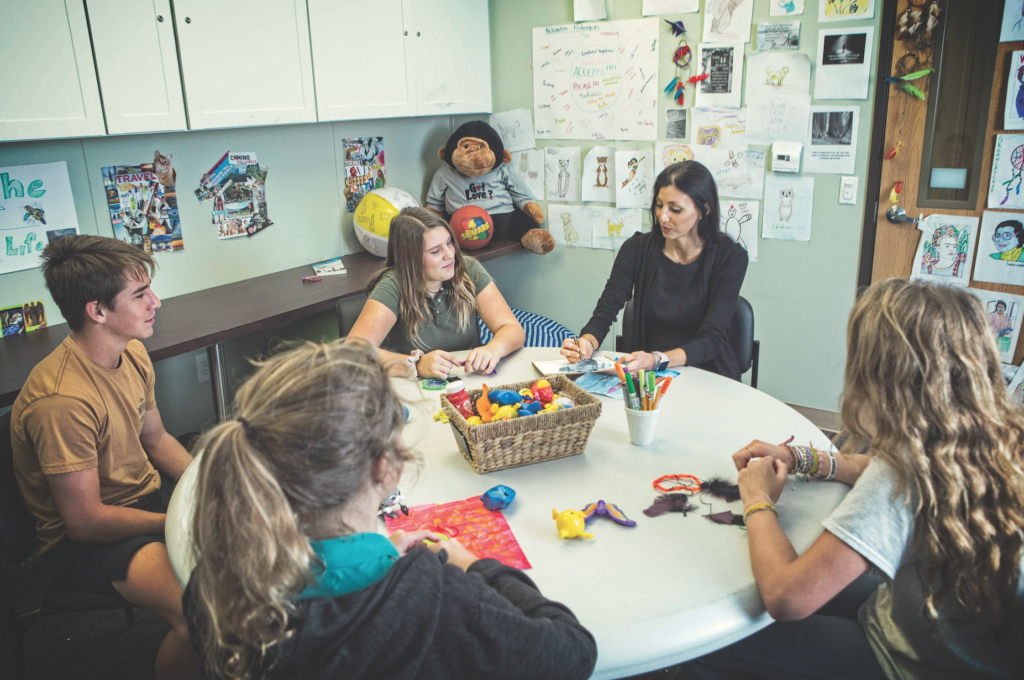
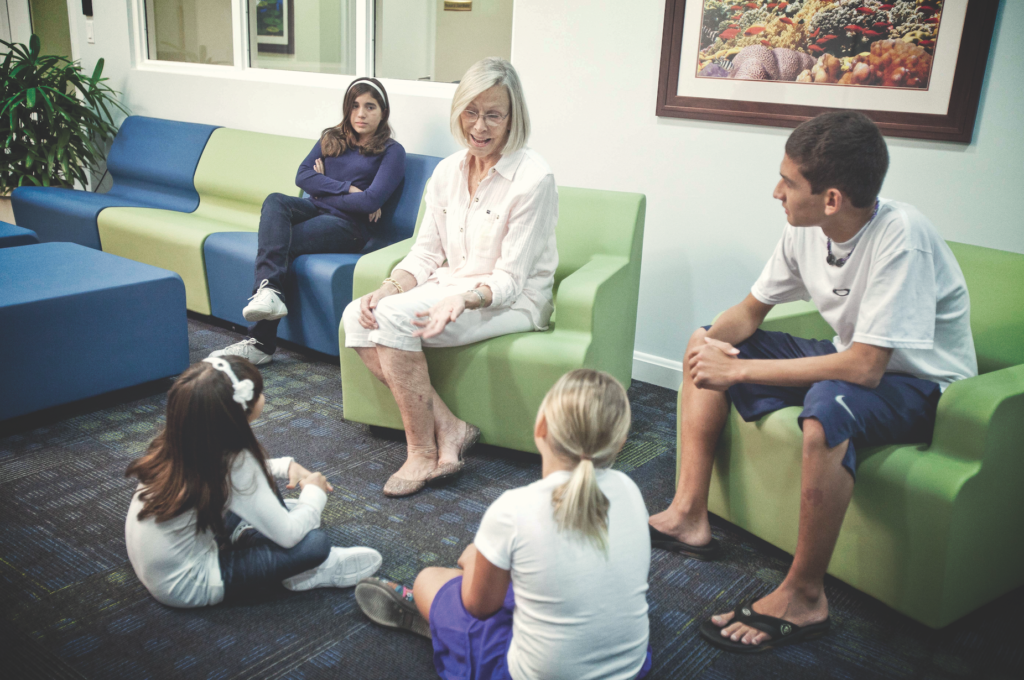
In particular, NCEF’s funding of children’s services has transformed access to mental health for kids in Collier County. The organization was key in helping launch the only children’s partial hospitalization program in Southwest Florida, caring for minors with issues including depression and bipolar disorder. This approach allows children to receive intensive care as in a hospital setting—such as individual, group and family counseling, while having a sense of normalcy by returning home in the evenings. “Because of those symptoms and struggles, they may be having trouble with school, academics, parents and family—quite often they are multichallenged situations,” Burgess says. In 2020, factors like isolation from school closures and family job loss added to the uncertainty for many, particularly the most vulnerable.
NCEF has also provided funding to train staff, including specialty, evidence-based care for children with certain behavioral health challenges. They’ve supported training for trauma-informed therapy and dialectical behavioral therapy, which helps patients change negative thinking patterns and unhealthy behaviors.
To reduce the stigma around mental and behavioral health, the group funds programs that create community dialogue about a pressing subject. “We know that there will be a dramatic need for mental health services in the months and years to come,” Burgess says. “And we are so thankful for NCEF. The way that I characterize them is this: there are certain individuals and certain organizations that, instead of running away from a fire, they run right into it, and that’s NCEF.”

Children’s Early Learning
Early childhood education has always been a core mission for the NCEF—and that includes learning that starts before a child enters school. Since research shows that the first five years of life are the most critical for brain development, and economically disadvantaged children often don’t have access to care that their peers do, the organization works to find solutions for families.
A key component of this is the Early Learning Coalition (ELC), which serves more than 8,000 children each year through childcare and prekindergarten services. This includes administering the School Readiness Program for low-income and at-risk children, and the voluntary prekindergarten program that serves all 4-year-old children in Lee, Collier, Hendry and Glades counties.
The Early Learning Coalition administers grant funding and works with providers, such as day care centers, to care for at-risk children and get them prepared for school.
Although the Early Learning Coalition receives funding from the state, it relies on substantial support from the NCEF to fill gaps. “Because of NCEF funding, we’re able to serve up to 45 children who would remain on the waitlist otherwise,” CEO Susan Block says. “The NCEF is a tremendous partner. Not only has the group been incredibly generous through the funding that they raise through the Naples Winter Wine Festival, but they are good partners in thinking about moving forward in a strategic way when we receive funding.”
This hands-on, strategic thinking has been invaluable during the pandemic, as childcare centers worked to continue to provide care during a time in which some were losing revenue from low enrollment. The ELC worked across providers and organizations to help everyone stay safe and open. “The pandemic has really shone a big bright light on how important childcare is for the economy. In order for people to go back to work in Collier, they need to have reliable childcare,” Block says. “People are concerned about K-12, rightfully so, but for communities and businesses to be open, younger children must be cared for.”
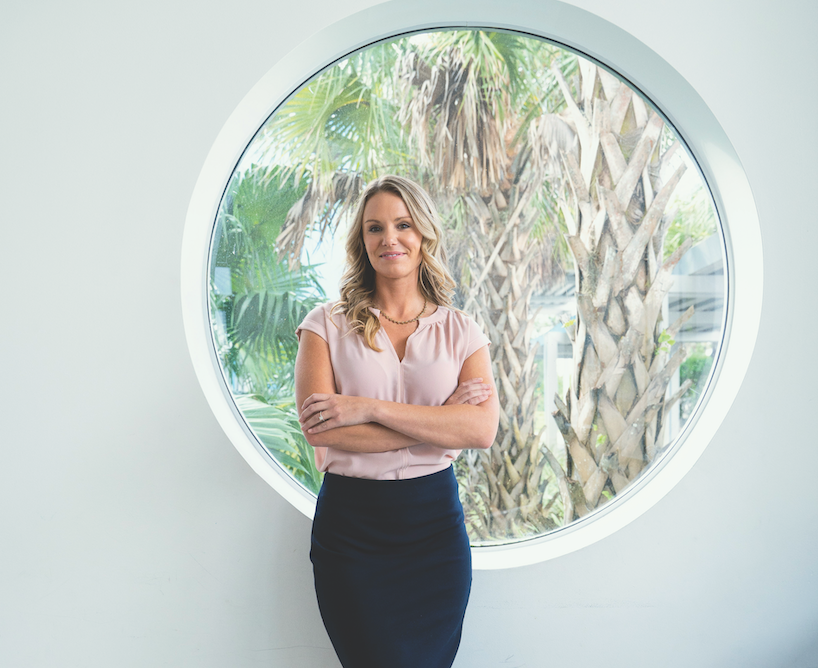
Children’s Out-of-School Time
Learning doesn’t stop outside the classroom. But in Collier County, many economically disadvantaged students don’t get the support they need during the hours outside of the 8 a.m.-to-3 p.m. school day. The Out-of-School Time Initiative fills in with extensive services designed to support a student’s academic success and personal development. “When the initiative started, there were many organizations operating to provide services, all in their own silos,” NCEF Out-of-School Time director Jamie Scott says. “NCEF recognized an opportunity to help these organizations work together to serve more children for the same amount of money.”
The needs are great. In Immokalee, 95% of students live in homes that are economically disadvantaged. With only 16% of parents here with a high school diploma, many have limited resources to support their children’s academic growth. That’s where the Out-of-School Time Initiative comes in, supporting organizations that provide comprehensive after-school programs, homework help, reading interventions and making sure kids get a hot meal every day.
This includes comprehensive after-school programs, making sure children get a hot meal each day, homework help and reading interventions, Scott says.
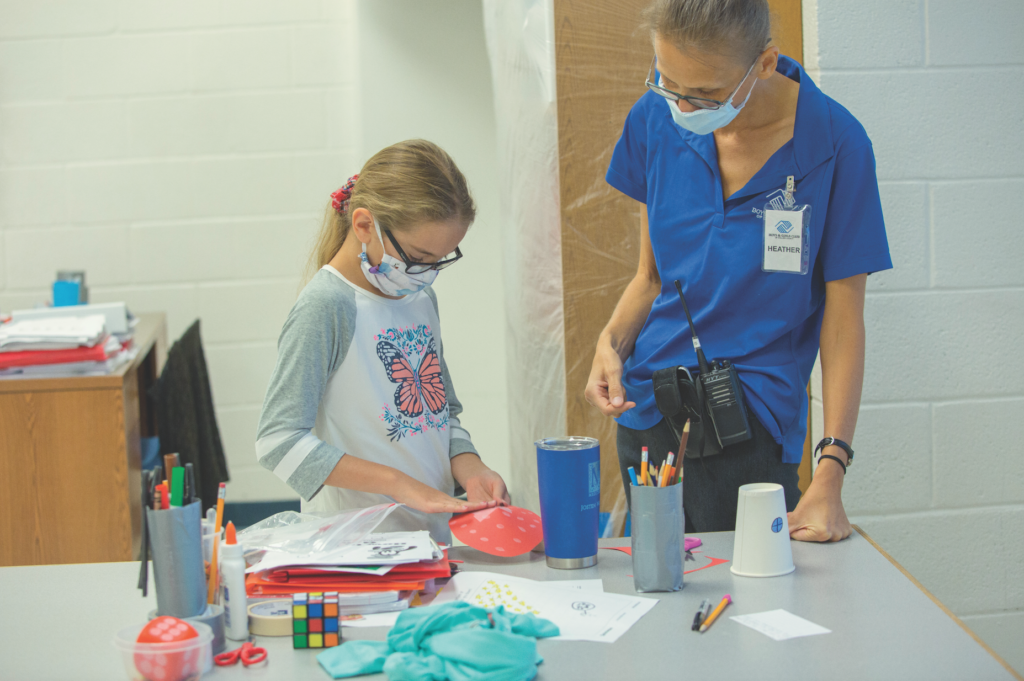
Services are provided at organizations such as the Boys & Girls Club, Guadalupe Center, Redlands Christian Migrant Association and The Immokalee Foundation. Together, these organizations provide assistance throughout the K-12 experience, from reading help early on to leadership training and career immersion later in high school.
One program of the Guadalupe Center, called Tutor Corps, empowers high school students to tutor K-2 students, while also receiving their own mentoring as they prepare for college.
Among offerings at The Immokalee Foundation are certified professionals who provide children with an extra level of reading support.
All programs are free of charge to any child who needs extra support. “More than just an after-school program, we’re looking at the child as a whole, and that’s what the NCEF is really good at,” Scott says. “These children have so many barriers. Their families are wonderful and supportive, but have their own challenges, so we bring in professionals who can help support them.”
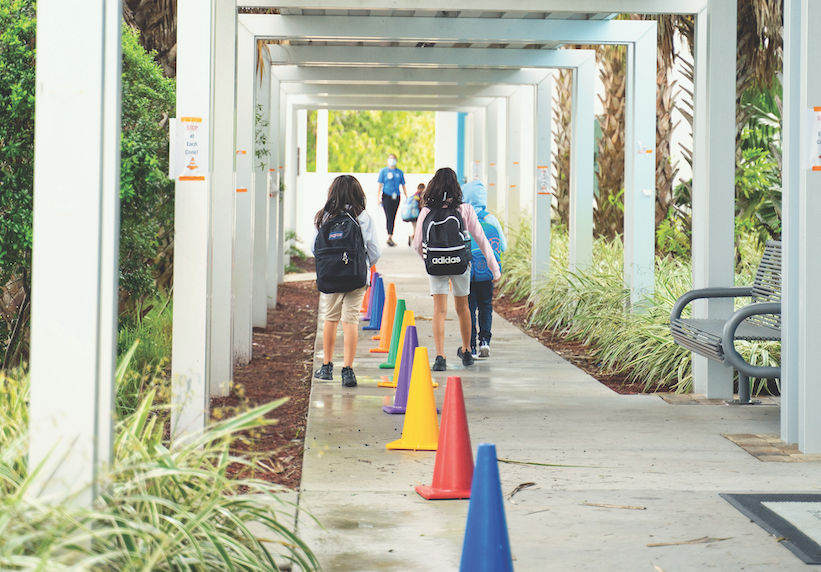
This includes frequent communication with other organizations supported by the seven strategic initiatives, such as healthcare, vision and dental care. Three years ago, the initiative began to partner with the FSU Clinic of Child Stress and Health, making a clinical psychologist available for students with behavioral issues.
This care has continued during the pandemic, as each of the after-school care providers has moved to adjust programming and spaces to keep children and staff safe. Though it’s impossible to know the long-term impact of current events, Scott says she is encouraged by seeing how children who have grown up with Out-of-School Time have flourished. “We’ve seen children receive many of these services and grow up to be true leaders and academic superstars. It’s amazing to watch how they flourish with good support,” she says.

Children’s Oral Health
Historically, more than a third of Collier County children haven’t had access to basic dental care. The NCEF Pediatric Dental Health Center, established in 2008, is dedicated to changing that. “Children can’t learn in school when they have a toothache, they can’t sleep well when they have a toothache—some don’t even want to smile because of their decayed teeth,” clinical director Dr. Lauren Governale says. The center has provided dental care for more than 150,000 children. Managed by the University of Florida College of Dentistry, its home to one of the most competitive pediatric dental residency programs in the country.
Here, residents learn how to treat severe dental issues, while children and their families get access to state-of-the-art care. “We’re one of the few programs in the country able to offer this highly skilled service, and it makes a big difference for children and their families,” Governale says.
The NCEF also funds extensive prevention programs. The center is home to a bilingual health educator who helps patients and families learn about dental hygiene and diet.
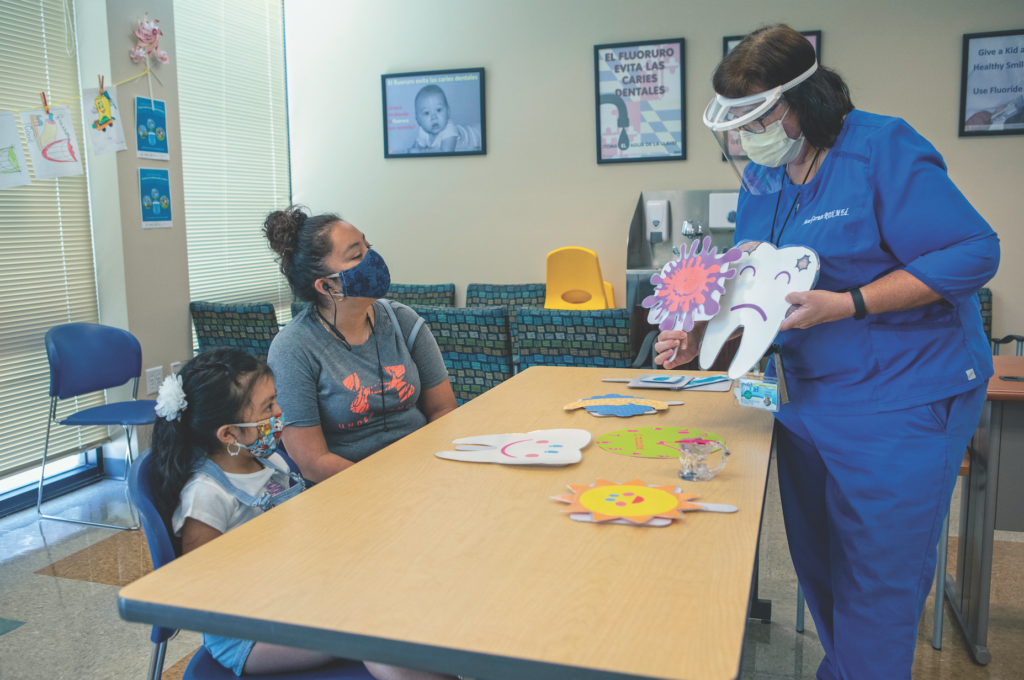
The team brings programs into the community, too, through school-based initiatives. There’s evidence that these prevention efforts work, with fewer children needing urgent dental care. “We’ve been able to improve the quality of life for the children,” Governale says.
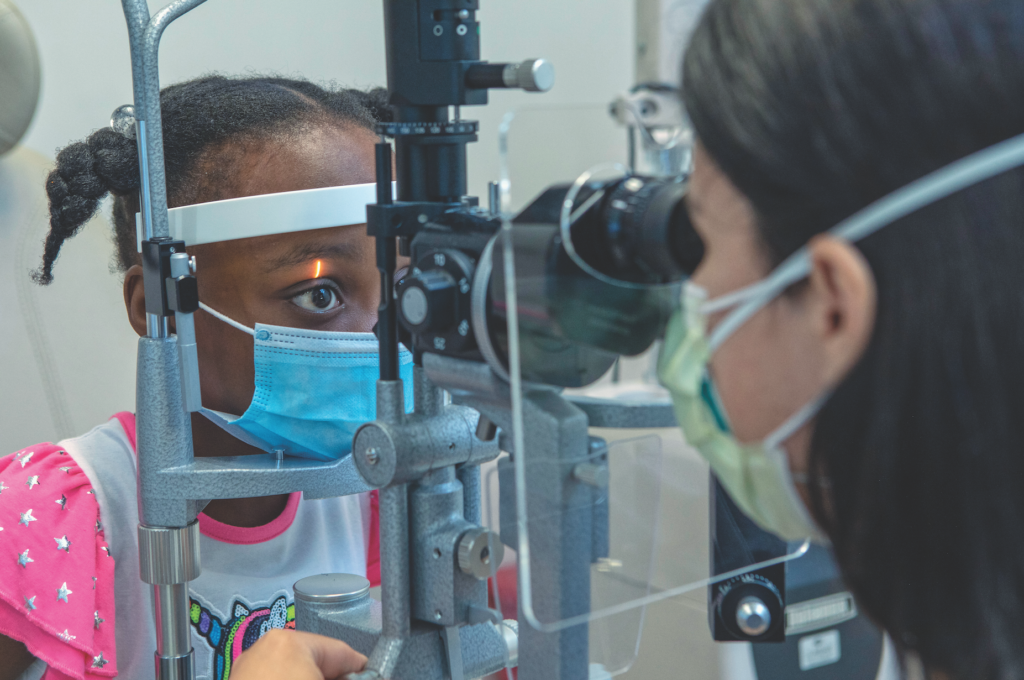
Children’s Vision
The Bascom Palmer Eye Institute has long partnered with NCEF. Last year, Bascom Palmer started to manage prevention efforts, including initial screenings at all Title I schools. The organization’s goal: to ensure all children are evaluated and receive care. “It’s going to be very good for the children to receive this level of comprehensive vision care,” Dr. Eduardo Alfonso, the director, says. As issues are identified, children receive corrective care, including, if necessary, two pairs of eyeglasses—one for home, and one for school. If the problem can’t be corrected with glasses, they receive additional attention at one of the initiative’s tertiary care providers.
Though the outreach is for children, the program can reach entire families, many of whom have never had an eye exam. “When we identify children with severe astigmatism and we get a history from the parents, many say, ‘I’ve never had an eye exam myself.’ The parents may have the same issue but have never had to work on a computer because they are farm workers, so their astigmatism didn’t prevent them from doing their work. But it may affect them and their children in other areas of life,” Alfonso says.
They also teach about eye protection, which is vital for many families in which the parents are manual laborers. “These children may not stay in Collier County the rest of their lives, but regardless of where they go, the impact of this program will be felt for generations,” he says.
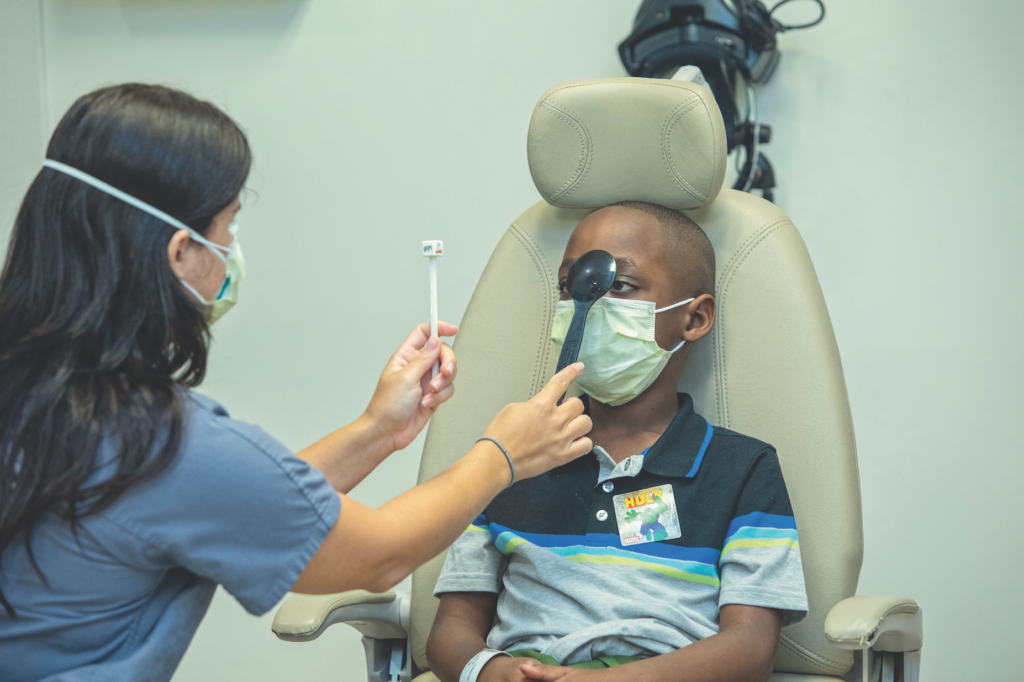
Early Childhood Court
Collier’s new Early Childhood Court (ECC), which rolled out this summer, couldn’t have come at a better time. “Substance abuse, mental health, domestic violence—they’re all on the rise right now with the pandemic,” ECC community coordinator Danielle O’Conner says. “Poverty, people losing their jobs, stress levels are high. In turn, there’s the child abuse or neglect that comes with that. It’s all just kind of a domino effect, unfortunately.”
The ECC was developed to empower families with children up to age 3 who’ve been separated from their parents. The program’s goal is to provide families with the resources they need to be reunited, whether that’s by gaining access to psychotherapy, daycare, reliable transportation or other solutions.
Funded by a $500,000 grant from the NCEF, the program is already making a difference. “The ultimate goal is to do everything we can to stop that cycle of abuse,” O’Conner says. “We’re trying to help with brain development during this early time in these children’s lives, so they have the ability to form healthy and safe attachments and be more resilient going forward.” —Alyssa Morlacci



